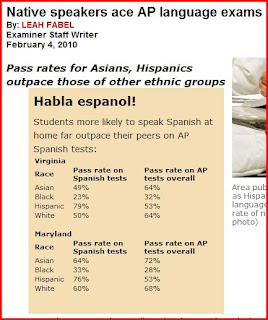Low-income students’ scores can drop, while high-income students’ scores drop even more. Low-income scores can remain steady, while high-income scores drop. The gap is narrowed in those cases, but to what end? The difference gets smaller, but somebody is still losing ground.
Why not focus on each student’s progress? Why these knee-jerk comparisons with other people who have different problems?...

